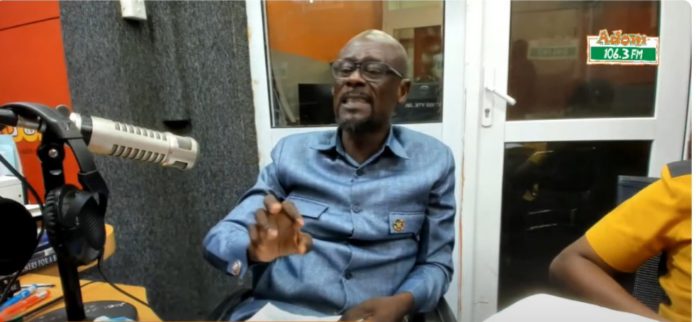Former Director of Communications for the New Patriotic Party, Yaw Adomako Baafi has voiced strong concerns about what he says is the apparent dormancy of the National Commission for Civic Education (NCCE) regarding vote-buying during elections.
There have been alleged reports of increasing vote-buying in Ghana’s politics, which reared its ugly face at the just-ended NPP parliamentary primaries. Many political watchers have said the phenomenon is gradually raising the cost of elections in the country.
As a result, the MP for Asante Akim North Constituency and Chairman of the Foreign Affairs Committee of Parliament, Andy Appiah Kubi, could not hold back his pain after spending a huge amount of money for a win.
In a media address following his constituency’s election, the MP vowed to quit if nothing is done by the party to resolve the problem. “There’s no money in the party. It’s too expensive…there’s no benefit in spending a lot on such events.”
However, speaking on Joy Prime’s Prime Morning, Mr. Baafi blamed the vote-buying phenomenon on the ineffectiveness of the NCCE to promote civic awareness as it is mandated.
He criticised the NCCE’s role in fostering civic awareness, stating that there is a pressing need for a more robust and proactive approach to educating voters on their civic responsibilities.
“The NCCE needs to create consciousness about the implications and repercussions. It’s like people have taken it for granted. It appears the NCCE is, in a way, sleeping. It is about time we bring back the civil work to create consciousness,” he suggested.
He emphasised that despite the NCCE’s mandate to promote civic education, there have been persistent challenges in reaching a wide audience and effectively communicating key electoral information.
Mr. Baafi further highlighted instances where voters lacked crucial knowledge about the electoral process, contributing to misinformation and potential disenfranchisement.
The NCCE is an independent, non-partisan governance institution set up under Article 231 of the 1992 Constitution of the Republic of Ghana.
The Commission works to promote and sustain democracy and inculcate in the Ghanaian citizenry awareness of their rights and obligations through civic education.
Elections play a crucial role in democracy, offering citizens the chance to choose leaders who will advocate for their concerns and influence the direction of their country’s future.
However, the integrity of elections in Ghana is under significant threat due to the emergence of the practice of vote-buying.
This critique comes at a crucial time, as nations continue to grapple with the complexities of conducting transparent and informed elections.
The perspective raises important questions about the role of civic education in shaping a well-informed electorate and underscores the need for continuous improvement in the mechanisms employed by institutions like the NCCE.
ALSO READ:

